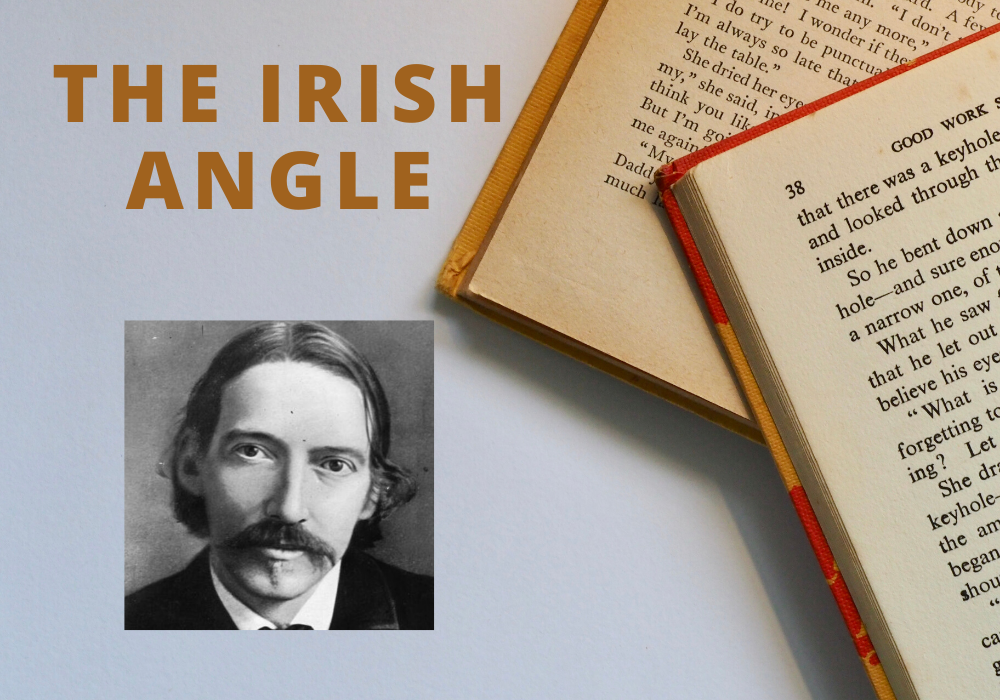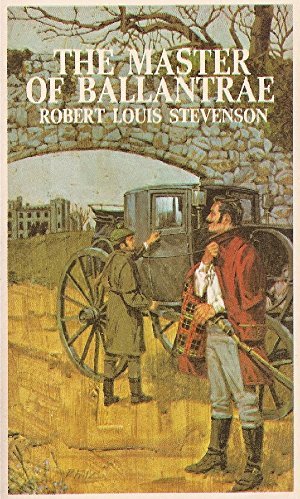
Tony Canavan looks at the Irish Angle with Robert Louis Stevenson’s The Master of Ballantrae
Robert Louis Balfour Stevenson (1850–1894), novelist, poet, essayist and travel writer, is best known for Treasure Island, Kidnapped, and The Strange Case of Dr Jekyll and Mr Hyde. Throughout his life he was dogged by ill health and in June 1888 he and his wife sailed to the Pacific where it was thought that the climate would be good for him. They travelled to the Gilbert Islands, Tahiti, and New Zealand, before settling in Samoa. During this period, he completed The Master of Ballantrae, a swashbuckling historical novel with a strong Irish angle.
Written as the memoir of Ephraim Mackellar, steward of Durrisdeer, it opens in 1745 with Bonnie Prince Charlie’s arrival in Scotland. The Durie family—the Laird of Durrisdeer, his older son James (the eponymous Master of Ballantrae) and his younger son Henry—decide that one son will join the Prince’s uprising while the other remains loyal to King George, so that the family would come out on the right side no matter who won. The toss of a coin sees the Master joining the Rising leaving Henry at home. The Rising fails and James is reported dead, so Henry becomes the heir, though he does not assume the title of Master, and at the insistence of his father, marries the Master’s heartbroken fiancée. In the following years Henry is vilified by the local community for betraying the Rising and treated shabbily by his wife and father who still mourn for the lost son.

At this point an Irishman enters the story. In 1749 Colonel Francis Burke, arrives with letters from the Master, who is still alive and living in France. Burke recounts that the Master attached himself to Prince Charles in the hopes of money and high rank. After Culloden the Master had to take to the hills, encountering Burke in a similar predicament. Together, they take a ship for France, but the ship was old and unseaworthy, and after days of being lost in bad weather, it was taken by pirates under a Captain Teach. The pirates make the crew walk the plank but Burke’s wit, charm and ability with a fiddle endear him to them, and the Master by association. As a result, they are taken into the pirate crew.
What follows is Burke’s account of their career as pirates. The Master leads a mutiny against Teach and takes over the ship, proving himself even more vicious and ruthless a pirate than his predecessor. After time at sea, the Master and Burke abandon the crew in North Carolina, making off with the ship’s treasure helped by two others. Only Burke and the Master make it alive to Albany from where they strike out for Canada but get lost in the wilderness. The two quarrel and separate but meet up again by chance in France. Hence Burke’s arrival in Durrisdeer.
Henry then spends some years sending money to his wayward brother, almost bankrupting the estate in the process. Again Burke is the means of communication when he, in 1756, lets Mackellar know that the Master was imprisoned in the Bastille. Now released but a broken man, he plans an expedition to India, and needs money to go there. Apart from an account of an unhappy meeting with the Master in India, this is the last we hear of Burke. He has served his purpose and the plot carries on without him.
It would be unwise to read too much into the inclusion of Burke in this novel. A regiment of Wild Geese did accompany Bonnie Prince Charlie in 1745 so his presence is not improbable. Stevenson did not have a connection with Ireland but he was interested in politics. Much like his father, he was a staunch Tory and we know that he disapproved of land reform and home rule agitation in Ireland. It is difficult to discern clearly Stevenson’s attitude to the Irish from this novel. Much of it is narrated by Burke, who generally gives a good account of himself and his nation, commenting at one point on “the love with which our nation is regarded”. Is the reader meant to take this at face value or see it as an example of Irish bragging? On the other hand, Mackellar develops a grudging respect for Burke but says that the Master lost much popularity during the Rising for allying himself with the Irish; that they did Prince Charles’s “cause such an infinity of hurt and were so much distasted of the Scots at the time of the rebellion”.
At best Francis Burke comes across as a lovable rogue who is led into evil actions against his nature by the Master, who is the true rogue in this story. However, his main purpose is as a plot device to fill in the blanks in the Master’s career and to be a conduit between him and his family back in Scotland. The Master’s attachment to Burke is never fully explained and once he has served his purpose, Stevenson unceremoniously drops him from the novel.
***
Tony Canavan,
Consultant Editor, Books Ireland











